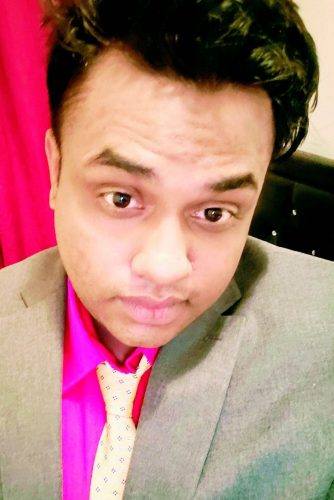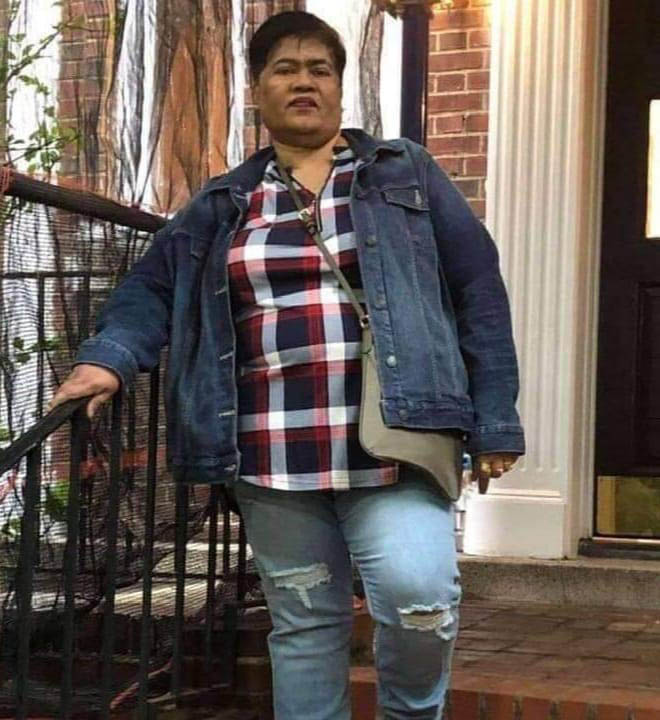It has been one year since Guyana recorded its first Coronavirus disease (COVID-19) case and while the pain of the sudden death of the country’s ‘Patient Zero’ remains fresh, uncertainty also still looms as to where she might have contracted the virus.
On March 11th, 2020 Guyana confirmed its first case of COVID-19 and death.
The victim was 52-year-old Ratna Baboolall. She had travelled from the United States (US) and arrived in the country on March 5th, 2020. She was admitted to the Georgetown Public Hospital (GPH) on the afternoon of March 10th, 2020 at around 5pm. While she was there, she presented uncontrolled diabetic and hypertension conditions, which saw her having to be resuscitated. Around 8am, the following day she died.

Ratna had travelled to Guyana to spend time with her children and other relatives.
Since that day, life here and across the globe has not been the same. It has been one year of face masks, frequent hand washing, social distancing and flagrant breaching of all of these guidelines.
The pandemic has seen so many changes that the question remains as to whether life will ever go back to the way it was before. Businesses have not been the same, schools remain closed for several grades, jobs were lost and above all many persons have died.
To date, there have been 8928 confirmed COVID-19 cases in Guyana and 205 persons have died. It is believed by many that these figures are understated.
Speaking to Stabroek News in a recent interview, Ratna’s son, Suraj Baboolall said up to this day, it is still unknown where she might have contracted COVID-19.
According to Suraj, his mother ‘rarely’ went outdoors and was taking all the necessary precautions to safeguard against contracting COVID-19.
“My mom never go outside, that’s the thing. The last time my mom went outside was me and her went to her doctor for regular visit and that was in January. Other than that she never see it fit to go outside. The only time she went outside was the day before she came to Guyana. She went to Liberty Avenue,” Suraj recalled.
“…I don’t know if my mom got it from the plane or where she got this from. It could have been so many ways she got it,” he said.
Prior to her departure to Guyana, Suraj said Ratna was “strong and healthy”.
“….She was strong, fit, ready to fly to come to Guyana and the moment she got to Guyana, she said she’s not feeling well,” he noted.
Cross contamination
Days after her death, a number of Ratna’s immediate family members including Suraj, her husband, two sisters, a niece and a granddaughter were taken into isolation after they tested positive.
There were initially tested on March 13th, 2020 and the results the following day confirmed that they were positive.
Suraj explained to Stabroek News that he is certain that the majority of the family members, if not all were infected due to cross contamination while at the isolation facility.
“They cross contaminated us and that is how most of us in our family got sick…that’s where all the cross contamination started,” Suraj said.
“That is when everyone started to get infected because they put us to use the same facilities with everyone, bathroom and everything,” he added.
He noted that he had raised concerns about his fears about this happening with those in authorities during their visit to the facility but nothing was ever done.
Several of the relatives including himself spent from as nuch as 40 days to up to 100 days before they were cleared.
“The tests were coming positive, negative, positive, negative, so we couldn’t have gone anywhere,” Suraj said.
Initially, for one to be cleared after they were tested positive for COVID-19, they were required to have two consecutive negative tests.
However, this rule was subsequently changed and now once a COVID-19 patient exhibits no symptoms during the first 13 days after being tested positive, they are deemed cleared. However, if symptoms persist during this period, then the individual is subject to further testing which will determine if they are still infected.
To prevent the spread, Suraj further explained that after his mother’s death, he and other family members lent their full cooperation to officials.
“I said we are going to be the first, we are going to go into quarantine, we are going to cooperate, we are going to mourn our dead in quarantine because we didn’t want this to go further,” Suraj said.
He said he would have never assumed that the situation would have gotten to this extent and even still exist one year after. “They told me if this happens, this can be our last case, we can abolish it in Guyana and I said fine, COVID-19 can go away. I didn’t expect it to go this way,” Suraj noted.
He believes that a major contributing factor to this is that people in Guyana tend to take the virus lightly.
The hardest
One year after, Suraj has since returned to the US after spending several months in Guyana following the death of his mother and his diagnosis.
He said from then to now, life has changed drastically.
“She was like the backbone of our family. She was like the one who kept us together. I mean we are still together but it’s hard losing a mother at such a young age. It’s the hardest and it’s literally still the hardest for us for her to just gone,” Suraj related.
“I mean thousands of people are in my shoes and just lost their family for something that could have been prevented from the beginning,” he said.
Mentally, he said while there were some effects, he managed to overcome it after seeking help from a therapist.
Suraj related that after he was infected and subsequently cleared, he took every possible precaution to avoid reinfection. “I wore mask, I sanitized, I washed my hands, I tried to get as much nutrition in my body as I can to build my immune system and same thing when I came back to the US,” he said.
He noted that although the situation is worse in the US and the cases are much more, he had to return since that is where his life is. “My job is here, my life is here,” Suraj said.
Just to be stay safe and be cautious, Suraj said since his return he tests regularly for COVID-19.
He said in his view, people in the US take more precautions and have a more serious approach towards the virus than those here, who he said hardly even wear a mask.
Suraj said he often wonders whether Guyanese knows the seriousness of COVID-19. “The way the Guyanese people operates when it comes to the virus. It’s like they operating this virus is not there when it is there…I wish they knew what it is getting Coronavirus and losing a family member. How it felt. Like your entire world just turns upside down. I wonder if they know how this feels,” Suraj stated.
Vaccine
Suraj, who is an essential worker in the US has also taken the COVID-19 vaccine.
He said over a month ago, he received his first dose of the Moderna vaccine.
In light of the hesitancy surrounding the vaccine, Suraj said from his personal experience it is not harmful. “I know people are saying the vaccine is harmful, the vaccine is going to introduce the virus to your body which is untrue. The vaccine does no such thing. The vaccine provides a protein to fight the virus,” he said.
He noted that the first dose was “a little” painful.
After a month, he said he took the second dose which was also a little painful and caused his arm to be sore. “I had a fever and I was a bit shaky but that was expected with that vaccine. It’s working. It’s like after a few days you don’t feel any different. It’s like just going and take a regular vaccine,” Suraj said.
He also donates his plasma regularly to help others in their fight against COVID-19.
Last month, Guyana received its first set of AstraZeneca vaccines – via a donation from Barbados of 3,000 doses. Following that, it received a donation of 20,000 Sinopharm shots from the Government of China and later 80,000 doses of the AstraZeneca vaccine from the Government of India.
Suraj is hoping that the vaccine will help to curb the way COVID-19 is being spread.
“People don’t listen. They want to do what they want to do. So I hope when it comes to the vaccine they are able to take it….When it comes to that, it can try demolish COVID-19 and keep it under control,” he said.
Suraj works in the medical field in NY. He volunteers to take care of patients who are disabled. He uses his experience to educate others, especially the elderly to take precautions in order to safeguard against contracting COVID-19.
“I don’t know how my mom got sick, I don’t know how I got sick and that’s how other people don’t know when they can get sick also. I always tell people to take precaution. Sanitize as much as you can, mask up, wash your hands and buy vitamins. Those are the things that protect your immune system and fight this virus,” Suraj asserted.
Suraj also urged persons to get vaccinated if the opportunity presents itself. According to him, COVID-19 is here to stay and might require adaptation.
“….I think COVID is going to be here to stay…it’s just that now we have to adapt. Take the vaccine if you are given the opportunity…It’s here to stay and we just have to fight it,” he said.









